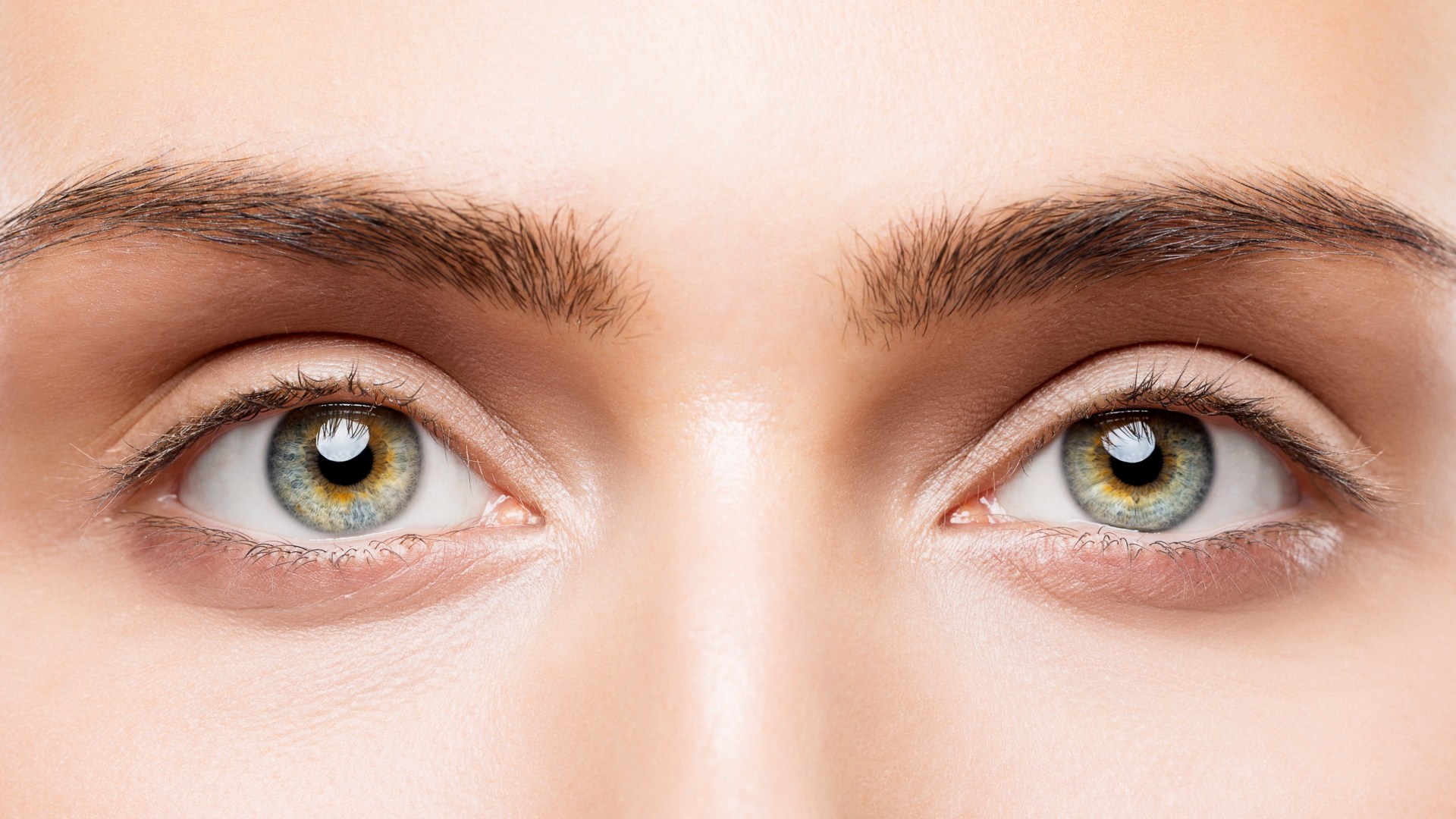THEY may be the window to your soul, but it turns out your eyes can also be a window to your overall health.
While your vision might change as the years advance, a study published this month found poor eyesight that is left untreated could increase your risk of dementia by 19 per cent.
6
Scientists at the John Hopkins University in the US said around half of cases of the debilitating disease could be prevented if people wore glasses or hearing aids.
And it’s not just your eyesight that’s worth tracking – from itchiness to lumps and bumps, there are other eye-related symptoms to watch for.
To mark National Eye Health Week, experts tell Clare O’Reilly what our eyes could be trying to tell us.
BUBBLE BURST

6
A SUDDEN burst of pain behind one eye could mean a medical emergency,
Dr Helen Wall, from the Oaks Family Practice in Bolton, tells Sun Health.
“It can be a sign of an aneurysm, which is a bubble in the wall of a blood vessel,” she explains.
Aneurysms can affect any part of the body and become dangerous when the bubble ruptures.
Dr Helen adds: “Eye aneurysms can be treated with surgery, but brain aneurysms can be fatal.
“As well as eye changes, they can be accompanied by sudden severe headaches.”
If you experience any of these symptoms, go straight to A&E.
TUMOUR MARKERS
SYMPTOMS vary for brain tumours, depending where in the brain they grow.
Dr Helen says: “Brain tumours can present with a feeling or sense of pressure.
“There can be a loss of vision, or blurred or double vision.”
Other symptoms include seizures, constantly feeling sick, behavioural changes, memory problems, progressive weakness, paralysis and speech issues.
Non-cancerous, benign tum-ours can still cause long-term damage, even death, so make an appointment with your GP if you spot any of these signs.
BRIGHT LIGHTS

6
IT’S normal for your eyes to struggle with bright lights, but in some cases it could be a sign of something more sinister.
Light sensitivity, or a dislike of bright lights that comes on fairly suddenly, could be an early warning sign of meningitis, so it’s vital to get it checked out.
It can also be a sign of lupus, Dr Helen explains.
“Lupus is an autoimmune condition, which affects the entire body,” she says.
“It’s usually diagnosed by blood tests but it can cause the eyes to become sensitive to light.
“It can also cause a reduced range of movement in the eyes, and inflammation of the tiny blood vessels in the eye.
“If you notice any changes, do an online consultation with your GP or call the NHS on 111.”
THE BIG C
SKIN cancers can also affect the outer eye areas, and eye melanoma is a form of the disease.
“It’s a cancer of the middle layer of the eye,” says Dr Helen.
“Changes in shape or size of the pupil and in the eye’s position in the socket are symptoms, as are dark spots on the iris.
“So see an optician if you notice anything.”
Skin cancer squamous cell carcinoma can also cause skin irritation, a sensation of something in your eye, and white, painless growths.
HIGH BLOOD PRESSURE

6
THERE are an estimated 14million people in the UK with high blood pressure, which increases risk of heart disease and stroke.
Dr Helen says: “Unusual kinks or bends in the blood vessels visible in the eyes are a sign of hypertension, to give it its medical name.
“Your optician can detect them, or see your GP about it.
“Most GP surgeries and pharmacies have blood pressure monitors in them where you can check yourself, so it’s worth a visit.”
HEART BREAK
IT’S not just your eyesight that opticians can check.
Dr Helen says they are also able to detect potential heart disease, and even tell if you’ve had a stroke.
“A stroke can leave behind microscopic marks in the eyes,” she says.
“They can also spot signs of heart disease.
“The marks they look for on the retina aren’t visible to the naked eye and need specialist equipment to detect them.
“Regular eye exams are so important.”
It’s recommended that adults have an eye test every two years.
TICKED OFF

6
IT is a debilitating condition that’s plagued celebrities such as Bella Hadid, Justin Bieber and Shania Twain, to name but a few.
Lyme disease is spread by tick bites and usually diagnosed via a blood test. But your eyes can also bear signs.
“Lupus can cause inflammation of the optic nerve and floaters in the eyes can be a sign of the condition,” Dr Helen says.
“So, if you’ve recently noticed a tick bite, even if you removed it, and you see floaters, speak to your GP in the first instance.
“Even if you don’t think you’ve been bitten, you may have missed it. Get it looked at.”
CHOLESTERAL CHECK
HAVE you noticed white or yellow marks around your eyes?
“Fatty deposits in the eyelids that look like white marks under the skin can be a symptom of high cholesterol,” Dr Helen says.
“A yellow ring around the cornea (outer layer of the eye) can also be a sign, especially if you’re under 40.
“It can also be a warning of a stroke, so take photos and fill out an e-consult with your GP practice.”
BLURRED LINES

6
HAVE you noticed your vision is a bit blurry at times?
Along with other signs such as protruding eyeballs or retracting eyelids, it could be signs of a thyroid problem.
The thyroid gland is in your neck and responsible for making hormones that help control your metabolism.
Thyroid eye disease, also known as Graves’ eye disease, typically means the gland is producing too much thyroid hormone – known as hyperthyroidism.
Dr Helen says: “This often coincides with dry eye, blurry vision or vision loss.”
Blurred vision can also be a sign of temporal arteritis.
She adds: “This is an inflammation of the medium-sized arteries found in the upper parts of the body.
“Treatment can prevent blindness and premature death so it’s vital to get it checked out.”
FOODS TO HELP EYE HEALTH
CLINICAL nutritionist Suzie Sawyer from MachShield says there are lots of foods you can eat that can help boost your eye health.
SALMON FOR OMEGA-3: “It’s this fatty acid that’s really beneficial to our eyes, particularly the cells in the retina. Other oily fish include mackerel, sardines and trout.”
EGGS FOR VITAMIN B2: “There are eight B vitamins in total, and B2 in particular helps maintain normal vision. Other foods rich in B2 are Greek yoghurt, white mushrooms, meat and feta.”
SPINACH AND KALE FOR MACULAR CAROTENOIDS: “Macular carotenoids are found in the macular, which is a part of the retina at the back of the eye that ensures we have clear, sharp vision necessary for reading and driving.”
PRAWNS FOR ZINC: “Zinc contributes to the maintenance of normal vision. Other zinc-rich foods include red meat, poultry, oysters, other seafood, nuts, dried beans, soy foods, milk, wholegrains, liver, dried beans and peas.”
ORANGES FOR VITAMIN C: “Vitamin C isn’t just good for immune health, it also aids collagen formation. This helps blood vessels and maintains the layers of connective tissue in the eye. Berries, kiwis, red and green peppers, tomatoes, broccoli and other citrus fruits are great too.”




